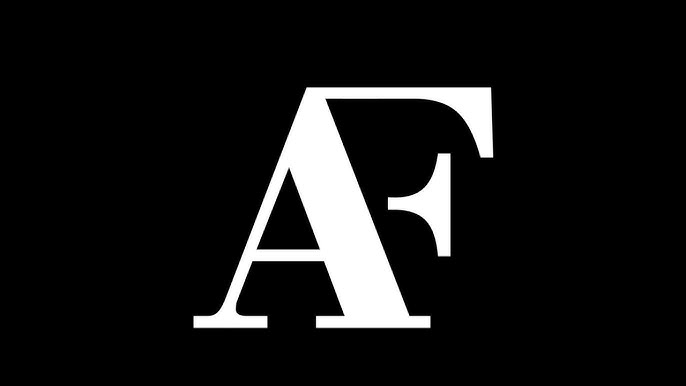Jamie Golombek: Best to file CRA appeals within 90 days of the date on your notice of assessment
Reviews and recommendations are unbiased and products are independently selected. Postmedia may earn an affiliate commission from purchases made through links on this page.
Article content
Congratulations! You’ve filed your 2023 tax return by the April 30 deadline and you’re awaiting your formal notice of assessment from the Canada Revenue Agency.
Once received, take a close look to verify that the CRA has assessed your tax return as you filed it. If not, you have the formal right to object and, ultimately, to your day in court. But in order to protect your right to object and perhaps take your matter to the Tax Court of Canada, you’ll need to make sure you file a valid and timely notice of objection by the deadline.
Advertisement 2
Article content
Article content
There are a couple of ways to file an objection. The easiest is to file it online by logging onto the CRA’s My Account for Individuals and selecting “File my formal dispute.” You’ll be assigned a case number that you’ll need to include when submitting documents, which can also be done online.
Alternatively, you can file your objection by mail by printing, completing and sending Form T400A, Objection – Income Tax Act to the chief of appeals at your Appeals Intake Centre. If you don’t want to use the T400A, you can simply mail the CRA a signed letter that clearly outlines the facts and reasons for your objection.
The deadline for filing an objection is one year from the normal filing due date, or 90 days after the date printed on your notice of assessment (NOA), whichever is later. If you miss the deadline, you can apply to the CRA within one year of the deadline for an extension. If the CRA denies your application, you may appeal to the Tax Court.
In recent years, the CRA has added a “Progress Tracker” to My Account, where you can view the status of files that you have submitted to the CRA, including your objection. It will show the date your objection was received and then the date that an initial screening was completed.
Article content
Advertisement 3
Article content
For example, I filed an objection on Aug. 9, 2023, for some of my disallowed 2021 home-office expenses. It was screened on Sept. 7, 2023 — not bad — and it was determined that my objection had “a medium level of complexity.” It went on to say that the CRA’s goal “is to resolve medium-complexity objections within 365 calendar days of the date they are sent to the CRA” — not great.
If you plan to file an objection, be sure to file your objection on time. Being even one day late can be fatal. We were reminded of this most recently in a tax case decided earlier this year involving a private Ontario corporation that was assessed GST/HST under the Excise Tax Act for nine monthly reporting periods between December 2016 and May 2019. The notices of assessment were sent by the CRA on Nov. 27, 2019.
Under the act, the company could have filed a notice of objection with the CRA within 90 days after the day notice of the assessment was sent, but it failed to do so. Instead, it waited until Feb. 26, 2021, before applying to the CRA for an extension of time to file an objection. The CRA refused to grant the application on the basis that it was filed one day beyond the one-year limitation period, which is one year following the 90-day deadline. The taxpayer then applied to the Tax Court to have its extension application granted.
Advertisement 4
Article content
The taxpayer’s position was that the deadline for filing its notice of objection would have been Feb. 26, 2020, and that it had filed its deadline extension application on time, on Feb. 26, 2021, which was within one year of the Feb. 26, 2020, deadline. According to the taxpayer, it interpreted the 90-day period to file its notice of objection as having begun on Nov. 28, 2019, that being the day after the date on which the notice of assessment was sent.
But the CRA disagreed, asserting that the corporation’s notice of objection had actually been due by Feb. 25, 2020, which was the 90th day after the date printed on the NOA (Nov. 27, 2019), with the resulting extension application therefore due by Feb. 25, 2021. As a result, the corporation’s extension application was one day late, so the CRA was prohibited from granting the extension application.
The judge reviewed each side’s position and concluded the corporation had, unfortunately, miscalculated its deadlines. If Nov. 28, 2019, was the first day of the 90-day period within which the corporation was to file its objection, then the 90th day afterward, being the deadline by which the objection had to be filed, would have been Feb. 25, 2020, with the extension deadline one year later, being Feb. 25, 2021.
Advertisement 5
Article content
The judge, therefore, had no choice but to dismiss the taxpayer’s application, so the corporation was unable to challenge the nine GST/HST assessments as the deadline for objection, as well as the extension, had passed.
Recommended from Editorial
-

What you need to know about the increased capital gains tax
-

CRA reverses course, exempts bare trusts from new regulations
-

Ignorance isn’t bliss when it comes to the CRA and TFSA rules
“The best time to file a notice of objection is within the 90-day period set out in (the act.) Filing a notice of objection even one day outside that 90-day period carries significant risk, because the objection is now contingent on the (CRA) granting an extension application,” John Bassindale and Stuart Clark, tax lawyers with Millar Kreklewetz LLP, said in a recent written commentary on the decision.
They noted that “waiting until the deadline date to file is a practice that should generally be avoided, given the many potential failure points (ranging from the technological to the personal) that could interfere with the process.”
For tax professionals, they recommended maintaining a professional “doomsday system” for diarizing and monitoring relevant deadlines to ensure deadlines are not inadvertently missed. This is sound advice for all of us.
Jamie Golombek, FCPA, FCA, CFP, CLU, TEP, is the managing director, Tax & Estate Planning with CIBC Private Wealth in Toronto. Jamie.Golombek@cibc.com.
If you liked this story, sign up for more in the FP Investor newsletter.
Bookmark our website and support our journalism: Don’t miss the business news you need to know — add financialpost.com to your bookmarks and sign up for our newsletters here.
Article content























Discussion about this post